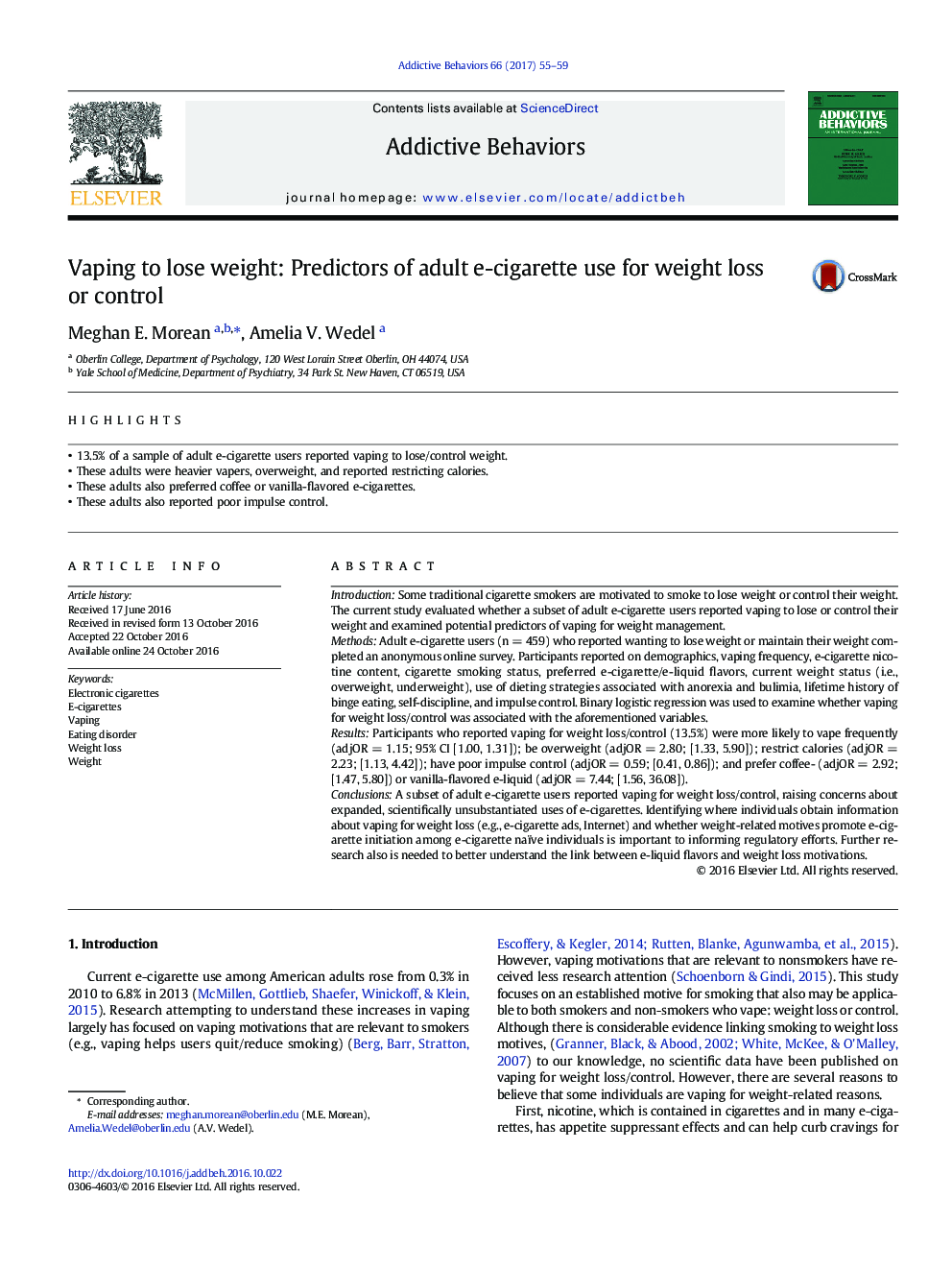| Article ID | Journal | Published Year | Pages | File Type |
|---|---|---|---|---|
| 5037859 | Addictive Behaviors | 2017 | 5 Pages |
â¢13.5% of a sample of adult e-cigarette users reported vaping to lose/control weight.â¢These adults were heavier vapers, overweight, and reported restricting calories.â¢These adults also preferred coffee or vanilla-flavored e-cigarettes.â¢These adults also reported poor impulse control.
IntroductionSome traditional cigarette smokers are motivated to smoke to lose weight or control their weight. The current study evaluated whether a subset of adult e-cigarette users reported vaping to lose or control their weight and examined potential predictors of vaping for weight management.MethodsAdult e-cigarette users (n = 459) who reported wanting to lose weight or maintain their weight completed an anonymous online survey. Participants reported on demographics, vaping frequency, e-cigarette nicotine content, cigarette smoking status, preferred e-cigarette/e-liquid flavors, current weight status (i.e., overweight, underweight), use of dieting strategies associated with anorexia and bulimia, lifetime history of binge eating, self-discipline, and impulse control. Binary logistic regression was used to examine whether vaping for weight loss/control was associated with the aforementioned variables.ResultsParticipants who reported vaping for weight loss/control (13.5%) were more likely to vape frequently (adjOR = 1.15; 95% CI [1.00, 1.31]); be overweight (adjOR = 2.80; [1.33, 5.90]); restrict calories (adjOR = 2.23; [1.13, 4.42]); have poor impulse control (adjOR = 0.59; [0.41, 0.86]); and prefer coffee- (adjOR = 2.92; [1.47, 5.80]) or vanilla-flavored e-liquid (adjOR = 7.44; [1.56, 36.08]).ConclusionsA subset of adult e-cigarette users reported vaping for weight loss/control, raising concerns about expanded, scientifically unsubstantiated uses of e-cigarettes. Identifying where individuals obtain information about vaping for weight loss (e.g., e-cigarette ads, Internet) and whether weight-related motives promote e-cigarette initiation among e-cigarette naïve individuals is important to informing regulatory efforts. Further research also is needed to better understand the link between e-liquid flavors and weight loss motivations.
